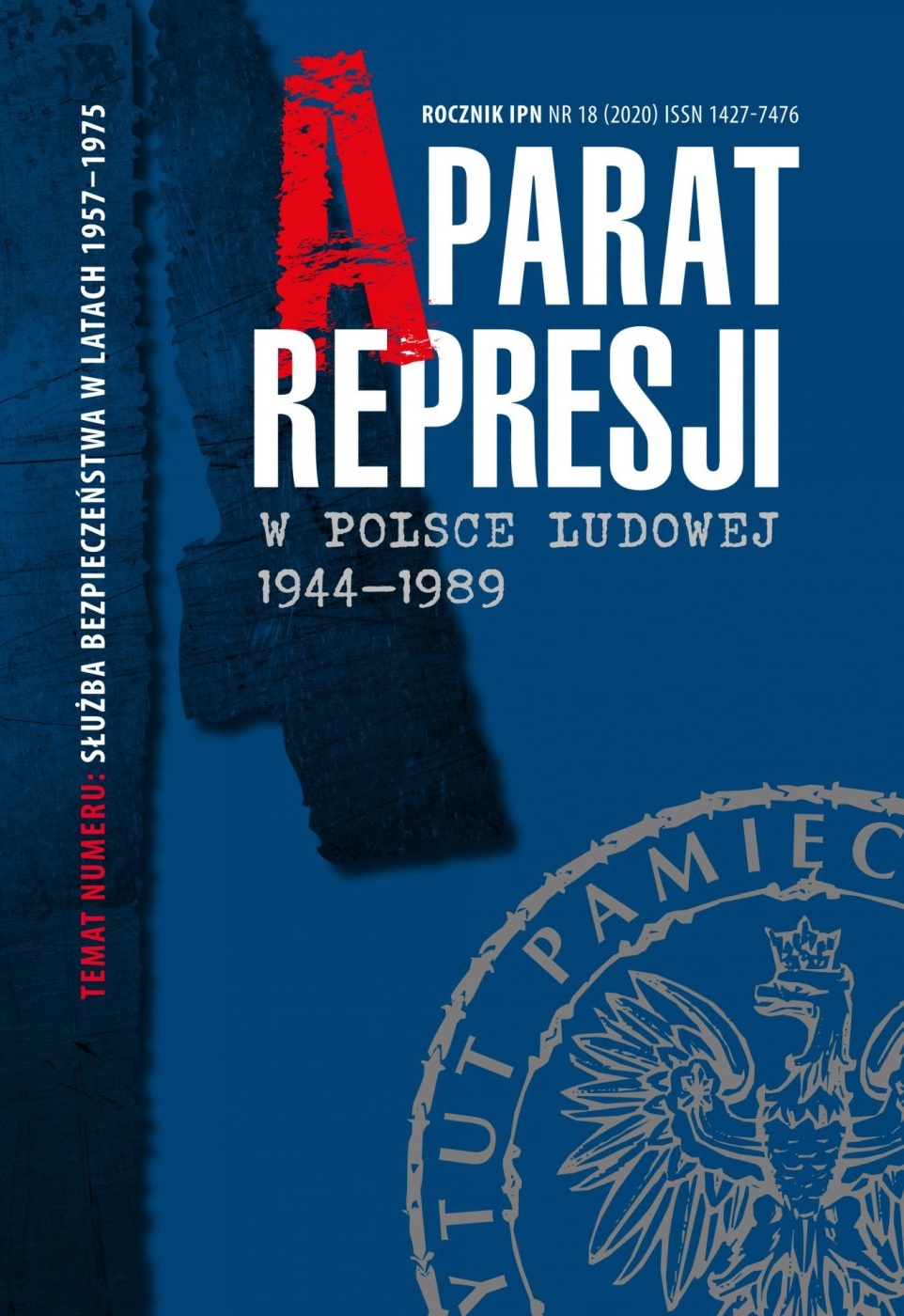Surveillance Keeping Step with Integrating Elites: The 'Operativgruppe Moskau' of the East German Stasi
Aparat Represji w Polsce Ludowej 1944-1989, No. 18 (2020), pages: 404-414
Publication date: 2023-03-29
 https://doi.org/10.48261/ARPRL201813
https://doi.org/10.48261/ARPRL201813
Abstract
This paper deals with the collaboration between the East German Stasi and the KGB. It focuses on the Stasi outpost in the USSR, the Operativgruppe Moskau, which functioned since the mid-1950s to monitor East German citizens in the USSR. It examines the development and the expanding scope of this Stasi outpost, outlines its activities and describes its limits, which were caused both by the mentality of the Stasi officers and the subordinate role of the Stasi outpost within the collaboration of the two secret services. The Operativgruppe Moskau is seen as an expression of the Stasi’s claim to control GDR citizens even beyond the GDR’s borders, and in general as an element of the cross-border surveillance in the Eastern bloc, following the growing exchange between the European socialist countries and its citizens.
References
Bundesbeauftragte für die Unterlagen des Staatssicherheitsdienstes der ehemaligen DDR (Archives of the Federal Commissioner for Stasi Records – BStU), Berlin DDR-Staatssicherheit und sowjetischer KGB. Quellensammlung, prep. by D. Selvage, W. Süß, https://www.bstu.de/informationen-zur-stasi/quellensammlungen/das-mfs-und-die-zusammenarbeit-mit-anderen-kommunistischen-geheimdiensten/, accessed 16 Jan. 2021
Bailey G., Kondraschow S.A., Murphy D.E., Die unsichtbare Front. Der Krieg der Geheimdienste im geteilten Berlin (Berlin: Ullstein, 1997); English version: Battleground Berlin. CIA vs. KGB in the Cold War (New Haven: Yale University Press 1997)
Domnitz Ch., with coll. of M.Tantzscher, Kooperation und Kontrolle. Die Arbeit der Stasi-Operativgruppen im sozialistischen Ausland (Göttingen: Vandenhoeck & Ruprecht, 2016; Series: Analysen und Dokumente. Wissenschaftliche Reihe des BStU, 46)
Gieseke J., The History of the Stasi. East Germany’s Secret Police, 1945–1990 (New York: Berghahn Books, 2014)
Labrenz-Weiß H., Die Hauptabteilung II: Spionageabwehr (MfS-Handbuch: Anatomie der Staatssicherheit – Geschichte, Struktur und Methoden) (Berlin: BStU, 1998), http://www.nbn-resolving.org/urn:nbn:de:0292-97839421300593, accessed 16 Jan. 2021
Richter W., Der Militärische Nachrichtendienst der Nationalen Volksarmee der DDR und seine Kontrolle durch das Ministerium für Staatssicherheit. Die Geschichte eines deutschen Geheimdienstes (Frankfurt a. M.: Peter Lang, 2004)
Tantzscher M., "Grupy operacyjne Stasi w krajach bloku wschodniego", Pamięć i Sprawiedliwość, 9 (2006), 43–61
Zech K.-A., "… nicht nur ein Förderinstitut". Mit der Arbeiter- und Bauern-Fakultät II Halle wurde vor 50 Jahren eine kommunistische Kaderschmiede gegründet (Magdeburg: Harz Druckerei Wernigerode, 2004; Series: Sachbeiträge des LStU Sachsen-Anhalt 33)
License

This work is licensed under a Creative Commons Attribution-NonCommercial-NoDerivatives 4.0 International License.
 Język Polski
Język Polski
 English
English


 PDF
PDF
